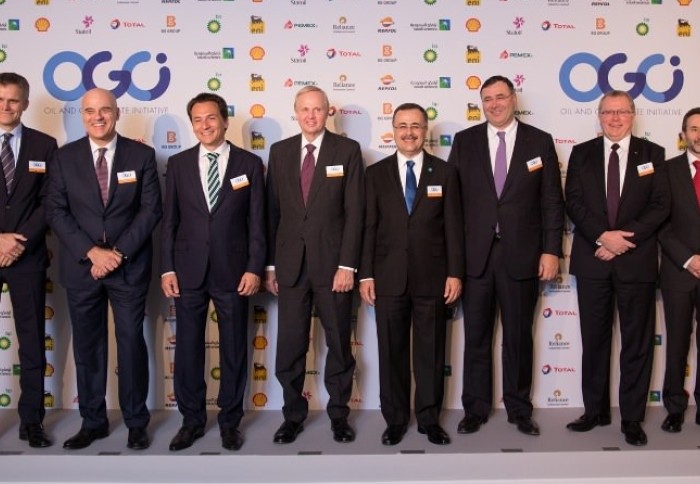Oil & gas industry declares action on climate change
by Zara Qadir

Last Friday the CEOs of ten of the World’s largest oil and gas companies declared their collaborative support for a strategy addressing climate change

This came ahead of the UN Framework on Climate Change event (COP-21) in December.
BG Group, BP, Eni, Pemex, Reliance Industries, Repsol, Saudi Aramco, Shell, Statoil and Total all form the group, Oil and Gas Climate Initiative (OGCI).
The OGCI members released a milestone declaration, which pledges to reduce the greenhouse gas intensity of the industry’s operations to mitigate climate change, while providing energy in a sustainable and affordable manner. One key emphasis was their commitment to increasing their investments in lower carbon intensive, natural gas.
The publication also highlights longer-time climate change solutions including investing in R&D and innovative technologies such as carbon capture and storage to reduce emissions.
The companies have also pledged their commitment to investing in renewable energy, as well as funding research into improving energy efficiency.
Some of this work will involve aggregating and sharing their data on ‘flaring’ and fugitive emissions to understand the climate impact of each stage in the natural gas chain.
Right now we are at a important crossroads when it comes to fossil fuels including natural gas. While natural gas continues to play an important role in the global energy mix, there are various environmental, commercial and technical challenges that need to be explored.
Working together to find solutions
The Sustainable Gas Institute (SGI) at Imperial College, established in May 2014, is currently well-equipped to answer some of these broader research questions on natural gas sustainability in both the short and long-term.
Researchers are currently working on topics such as emissions, energy efficiency, gas innovation, integration with renewables, and the capabilities of carbon capture, storage and use, – to help guide industry and policy makers in their decision-making around climate change policies.
Developing energy models
The Institute is developing an ambitious energy system model to understand the complexities of the global energy landscape. This involves examining every energy commodity and the crucial role of natural gas in the energy system towards a low carbon economy. The model will also focus on how to use technology more effectively in a number of areas, including transport, distribution, and heating and cooling systems.
Understanding emissions data and identifying gaps
In September, we published our first White Paper that examined a key issue for the oil and gas industry sector. Although climate research has typically focused on carbon dioxide emissions, methane has significant impact on global warming. We carried out an in-depth analysis of the current state of our knowledge on both methane and carbon dioxide emissions globally across all sections of the natural gas supply chain.
Since 2015, there has been 20% reduction in greenhouse gas emissions from the OGCI member’s combined operations. However, of course more must be done and there is still a lot of expertise and innovative thinking required.
This is a vital and game-changing time for the oil and gas sector both in the context of COP-21 and beyond in finding solutions to climate change.
The Insitute is keen to engage with Industry, OGCI and other organisations to share what we are learning from our research about the capability of natural gas in a lower carbon world.
You can download the OGCI declaration and report for from the OGCI website.
Please download a summary of our latest paper.
You can sign up to our newsletter by emailing SGI@imperial.ac.uk.
Our next paper will explore the capacity of carbon capture and storage in unlocking unburnable carbon reserves while still being consistent with a 2oC temperature increase future.
Article text (excluding photos or graphics) © Imperial College London.
Photos and graphics subject to third party copyright used with permission or © Imperial College London.
Reporter
Zara Qadir
Department of Earth Science & Engineering

